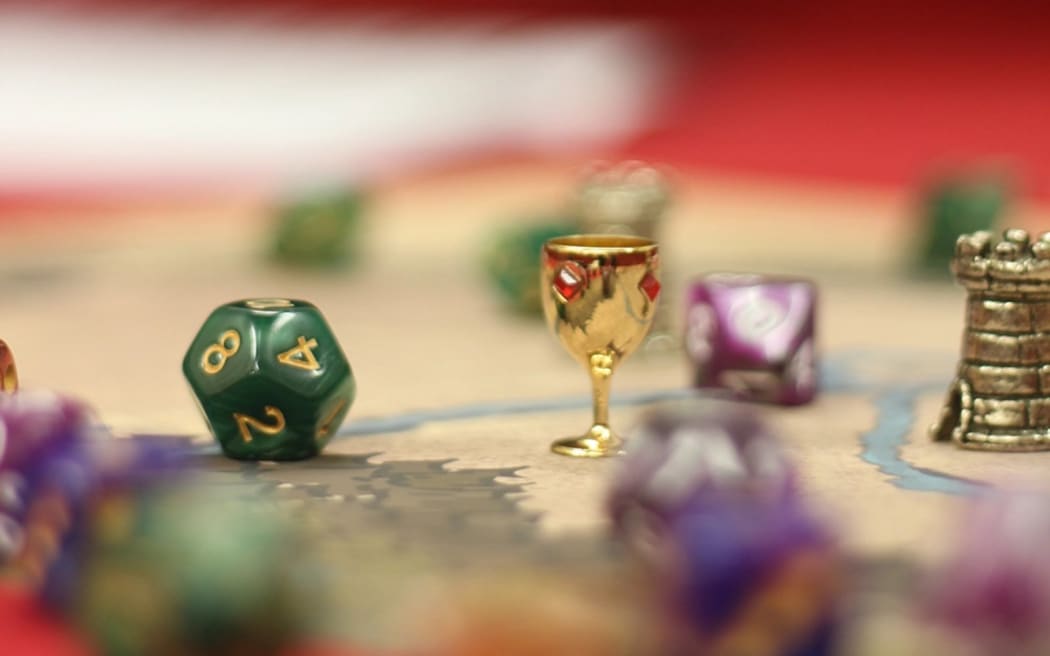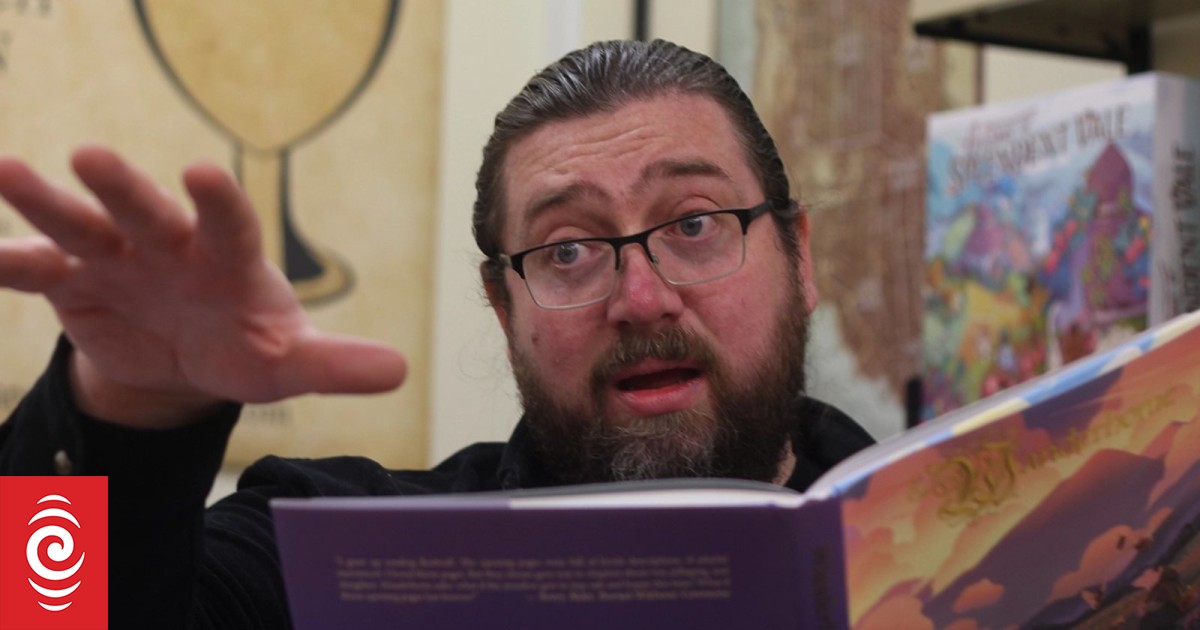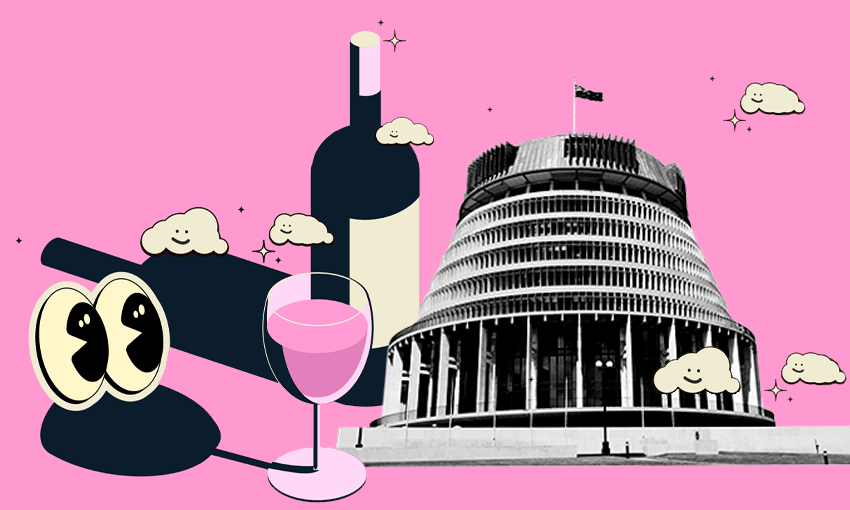Shaun Garea.
Photo: Shaun Garea / Supplied
A ‘gaming laboratory’ hopes to find out if rolling dice and slaying dragons is good for your brain.
Two psychology researchers at Massey University are launching the one-of-a-kind lab to investigate the mental health benefits of board games.
Tabletop games like Dungeons & Dragons let people be whoever they want to be in a fantasy world, but psychology lecturer Shaun Garea says players also take their experiences into real life.
“From a lot of the research that has been done already, it shows that people are coming away with a lot of benefits that were sort of unexpected.
“We want to look at what those unexpected benefits are, see if we can quantify them, and then see if we can help people identify what games are useful in their lives.”
This weekend Garea and colleague Ross Hebden will launch GRAIL, the Gaming Research and Investigation Laboratory, at Palmerston North’s Armageddon Expo. After that, the lab will be based at Massey University’s Manawatū campus.
“We’re aware there’s a text redundancy with ‘research and investigation’, but I think we just enjoy a good acronym,” Garea admitted.
His focus was on role-playing -where players construct characters and inhabit their stories.
“I find role-playing games very interesting, I’ve got a passion for them. I’ve constantly had on my mind these types of games and how they might interact psychologically with people, and I’ve just been working on ideas while doing other research.”
He said role-playing games were especially transformative for people questioning their sexuality or gender.
“A lot of the elements of role play is that you can try on a different skin in a safe environment, you can experiment and be someone else,” Garea said. “You can see how that feels, without judgement.”

Tabletop games like Dungeons & Dragons let people be whoever they want to be in a fantasy world.
Photo: Shaun Garea / Supplied
David Sander, a New Plymouth-based therapist specialising in sexuality and spirituality, said multiple clients had named Dungeons & Dragons as a positive outlet.
“That space within role-playing games, where you can get into it as much or as little as you want to, it doesn’t seem that there are any cultural expectations that you be a certain way. It seems like a really safe space to authentically express yourself.”
Sander said it was a particularly good environment for people to explore their sexuality.
“Sometimes when it comes to challenges such as sexuality, broaching the topic head on can feel unsafe, it can feel awkward. It’s a safer way of attending to something that can be really challenging.”
The other half of the lab, led by Hebden, will focus on traditional board games with stricter rules.
“Board games, for me, I love basically the opposite of [role-playing],” Hebden said. “They have these really confined spaces filled with little rules and puzzles.”
Board games were one of Hebden’s favourite hobbies long before they became the subject of his research.
“The joy of that is both the fun of the games and also looking at how people interact with them and what they take out of them. As a research interest, it’s really appealing.”
He said board games could kick start discussions and get players thinking about new ideas.
“We’ve got games about pandemic management, we’ve got games that deal with climate change, we’ve got a large range of socio-political games that are nice entry ways.
“One of the questions I’d like to see answered is whether or not that opens up a space for greater engagement with those topics.”
Hebden hoped the research done at GRAIL could answer some of his burning questions.
“When we look at the research that’s out there already, it’s either very dated or it’s quite broad. Our lab, I think it’s the only one in the country of its type. It’s a really nice and unique space to be in.”
Sarah Maindonald, president of the New Zealand Association of Counsellors, said she was excited by the idea of using board games as therapeutic tools.
“People talk about that moment of flow, where you’re totally engaged in something creative or something like a board game,” she said. “When you’re totally absorbed, it’s actually a really positive thing.”
Maindonald said counsellors were already using “play” as a way to break the ice and form a rapport with clients.
“I think many counsellors actually engage in games, particularly with young people.. Board games are cool because they equalise the power between the therapist and the client.”
Sander hoped he and his fellow therapists could learn new skills from Garea and Hebden’s research.
“It is really crucial for not just myself, but therapists in general, to be open to this kind of research and embrace different ways of working.”





















Discussion about this post